Farm Boy 牧場の少年 from Final Fantasy VII ファイナルファンタジーVII with sheet music
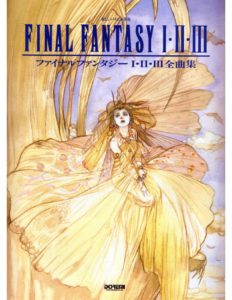
Sheet Music download here.
Music of the Final Fantasy VII series
Final Fantasy VII is a role-playing video game developed by Square (now Square Enix) and published by Sony Computer Entertainment as the seventh installment in the Final Fantasy series. Released in 1997, the game sparked the release of a collection of media centered on the game entitled the Compilation of Final Fantasy VII.
The music of the Final Fantasy VII series includes not only the soundtrack to the original game and its associated albums, but also the soundtracks and music albums released for the other titles in the collection.
The first album produced was Final Fantasy VII Original Soundtrack, a compilation of all the music in the game. It was released as a soundtrack album on four CDs by DigiCube in 1997. A selection of tracks from the album was released in the single-disc Reunion Tracks by DigiCube the same year. Piano Collections Final Fantasy VII, an album featuring piano arrangements of pieces from the soundtrack, was released in 2003 by DigiCube, and Square Enix began reprinting all three albums in 2004. To date, these are the only released albums based on the original game’s soundtrack, and were solely composed by regular series composer Nobuo Uematsu; his role for the majority of subsequent albums has been filled by Masashi Hamauzu and Takeharu Ishimoto.
The Compilation of Final Fantasy VII began eight years after the release of Final Fantasy VII with the release of the animated film sequel Advent Children in 2005. The soundtracks for each of the titles in the collection are included in an album, starting with the album release of the soundtrack to Advent Children that year. The following year, Nippon Crown released a soundtrack album to correspond with the video game Dirge of Cerberus, while Square Enix launched a download-only collection of music from the multiplayer mode of the game, which was only released in Japan. After the launch of the game Crisis Core in 2007, Warner Music Japan produced the title’s soundtrack. The latest album in the collection, Before Crisis: Final Fantasy VII & Last Order: Final Fantasy VII Original Soundtrack, was released by Square Enix the same year as a combined soundtrack album for the game Before Crisis and the animated movie Last Order.
The original music received highly positive reviews from critics, who found many of the tunes to be memorable and noted the emotional intensity of several of the tracks. The reception for the other albums has been mixed, with reactions ranging from enthusiastic praise to disappointment. Several pieces from the soundtrack, particularly “One-Winged Angel” and “Aeris’ Theme”, remain popular and have been performed numerous times in orchestral concert series such as Dear Friends: Music from Final Fantasy and Tour de Japon: Music from Final Fantasy. Music from the Original Soundtrack has been included in arranged albums and compilations by Square as well as outside groups.
Browse in the Library:
| Artist or Composer / Score name | Cover | List of Contents |
|---|---|---|
| The Phantom of the Opera – Andrew Lloyd Webber (Piano, Vocal, Guitar) |
 |
 |
| The Physical Basis Of Piano Touch And Tone (By Ortmann Otto) (1925) |
 |
|
| The pianist Anthology (28 favorite pieces collection) (1920) |
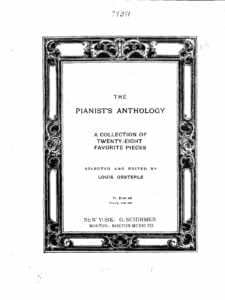 |
|
| The Piano A History In 100 Pieces by Susan Tomes (Book) |
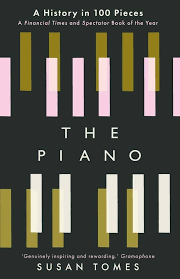 |
|
| The Piano Guys |
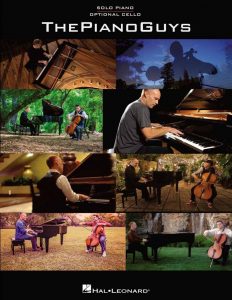 |
The Piano Guys |
| The Piano Guys – O Come O Come Emmanuel |
 |
|
| The Piano Guys Christmas Together Piano Solo With Optional Cello |
 |
The Piano Guys Christmas Together Piano Solo With Optional Cello Contents |
| The Piano Guys Jon Schmidt I Do |
 |
|
| The Piano Guys Jon Schmidt Piano Solos I | The Piano Guys Jon Schmidt Piano Solos I |
 |
| The Piano Guys Jon Schmidt Piano Solos II | The Piano Guys Jon Schmidt Piano Solos II | |
| The Piano Guys Jon Schmidt Piano Solos III | The Piano Guys Jon Schmidt Piano Solos III |
 |
| The Piano Guys Let It Go Disneys Frozen Vivaldis Winter | The Piano Guys Let It Go Disneys Frozen Vivaldis Winter | |
| The Piano Guys Michael Meets Mozart | The Piano Guys Michael Meets Mozart | |
| The Piano Guys Perfect (piano solo) |
 |
|
| The Piano Odyssey Etudes 1 Celebration Series RCM |
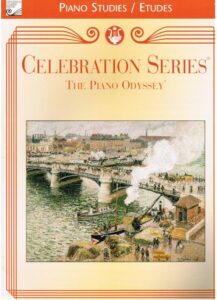 |
|
| The Piano Odyssey Etudes 2 (Celebration Series RCM) |
 |
|
| The Piano Odyssey Etudes 3 Celebration Series RCM |
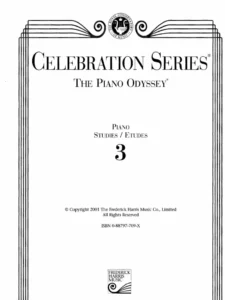 |
|
| The Piano Odyssey Etudes 4 (Celebration Series) RCM |
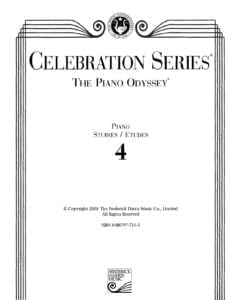 |
|
| The Piano Odyssey Repertoire 1 (Celebration Series) RCM |
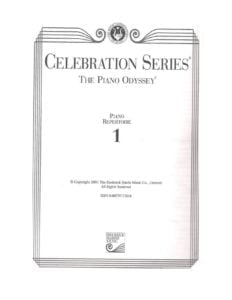 |
|
| The Piano Odyssey Repertoire 10 (Celebration Series) RCM |
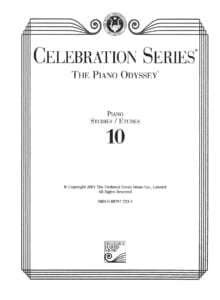 |
|
| The Piano Odyssey Repertoire 2 (Celebration Series) RCM |
 |
|
| The Piano Odyssey Repertoire 3 (Celebration Series) RCM |
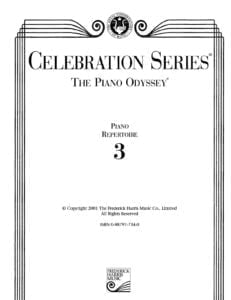 |
|
| The Piano Odyssey Repertoire 4 (Celebration Series) RCM |
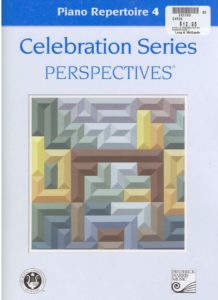 |
|
| The Piano Odyssey Repertoire 6 (Celebration Series) RCM |
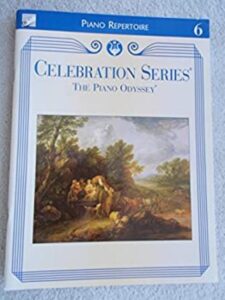 |
The Piano Odyssey Repertoire 6 |
| The Piano Odyssey Repertoire 7 (Celebration Series) RCM |
 |
|
| The Piano Odyssey Repertoire 8 (Celebration Series) RCM |
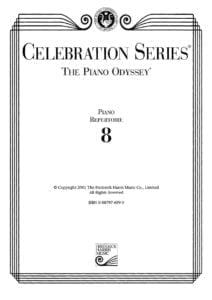 |
|
| The Pianoforte And Its Music (By Henry Edward Krehbiel) (1911) |
 |
|
| The Pink Floyd Song Book (Guitar) |
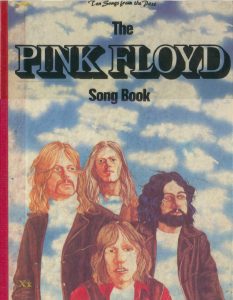 |
The Pink Floyd Song Book (Guitar)_compressed |
| The Pink Panther Full Theme (Musescore File).mscz | ||
| The Place I’ll Return To Someday – Final Fantasy Ix (Musescore File).mscz | ||
| The Platters – The Great Pretender |
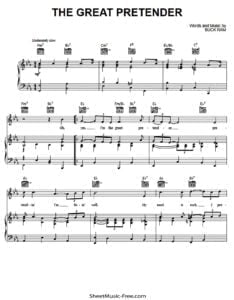 |
|
| The Platters Anthology |
 |
The Platters Anthology |
| The Polar Express – Believe – Glen Ballard | The Polar Express – Believe sheet music | |
| The Polar Express – Selections from |
 |
The Polar Express – Selections from |
| The Polar Express – When Christmas Comes to Town – Glen Ballard | ||
| The Police – Every Breath You Take – Arr. For Guitar (Musescore File).mscz | ||
| The Police – Guitar Signature Licks with audio MP3 with TABs |
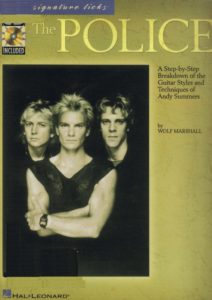 |
The Police – Guitar Signature Licks |
| The Police – Play Guitar With The Police (Book + audio MP3) with Tablature |
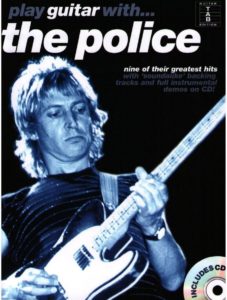 |
Play Guitar With – The Police |
| The Police – The Best (songbook) Guitar with TABs |
 |
The Police – The Best (songbook) |
| The Police – The Great Songs of The Police |
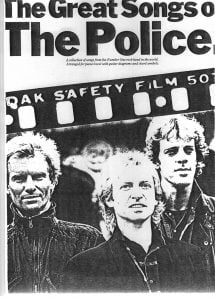 |
Police – The Great Songs of The Police |
| The Police – Walking on the Moon The Untold Story by Chris Campion (Book) |
 |
|
| The Practical Jazz Guitarist – by Mark White (Berklee Press) |
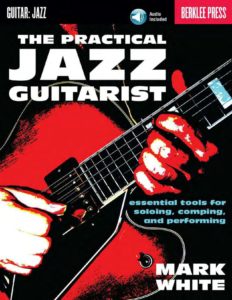 |
The Practical Jazz Guitarist – by Mark White |
| The Pretenders – I’ll Stand By You (Piano, vocal, guitar) |
 |
|
| The Princess And The Frog – Randy Newman Easy Piano arr. |
 |
The Princess And The Frog – Newman R. Easy Piano |
| The Principles Of Expression In Pianoforte Playing (By Adolph Friedrich Christiani) (1885) |
 |
|
| The Producers – Betrayed!, From the Musical by Mel Brooks |
 |
|
| The Producers Music Theory Handbook May 2023 |
 |
|
| The Punisher – Money For Everyone – Carlo Siliotto | ||
| The Queen – Alexandre Desplat |
 |
|
| The Quotable Musician From Bach To Tupac (eBook) |
 |
|
| The Ragtime songbook songs of – Charters, Ann, ed. 1965 |
 |
The Ragtime songbook songs of – Charters, Ann, ed (1965) |
| The Readers Digest Childrens Songbook |
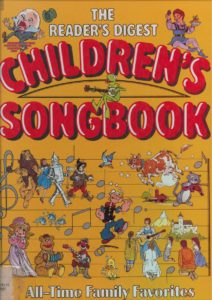 |
The Readers Digest Childrens Songbook |
| The Real Boogie Woogie Memphis Slim Piano Solos (1959) Book |
 |
|
| The Real Book 6th Ed |
 |
The Real Book 6th Ed |
| The Real Book Jazz Standards In C Version – A Collection of some of the greatest songs of the 20th Century |
 |
The Real Book Jazz Standards In C Version |
| The Real Book of Blues – 225 great blues Melody Line, chords, lyrics |
 |
The Real Book of Blues |
| The Real Book Of Funk Jazz |
 |
real book of funk |
| The Real Book Of Jazz Volume I 5th Edition sheet music pdf |
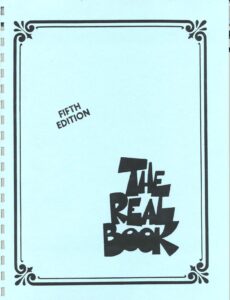 |
real book of jazz |
| The Real Book of Jazz Volume II (All new) |
 |
The Real Book of Jazz Volume II |
| The Real Book of Jazz Volume III (all new) |
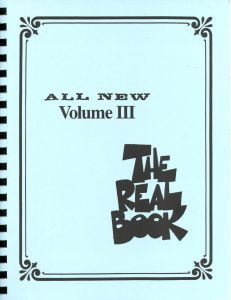 |
The Real Book of Jazz Volume III |
| The Real Book of Jazz Volume IV for C Instruments |
 |
The Real Book of Jazz Volume IV for C Instruments |
| The Real Book of Jazz Volume V |
 |
The Real Book of Jazz Volume V |
| The Real Christmas Book Fake |
 |
The Real Christmas Book Fake |
| The Real JAZZ Vol. 5 |
 |
|
| The Real Little Classical Fake Book (over 600 Classical Themes and Melodies |
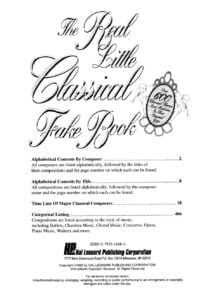 |
Real classical fake book sheet music |
| The Real Rock Book 2 |
 |
Real Rock Guitar by Kenn ChipkinThe Real Rock Book 2 |
| The Real Songbook – Bossa Nova 1 Brazilian Jazz Real Book (Sheet Music) | The Real Songbook – Bossa Nova 1 Brazilian Jazz Real Book | |
| The Red Book Great Piano Solos |
 |
The Red Book Great Piano Solos |
| The Reggae Songbook – Music Sales Corporation |
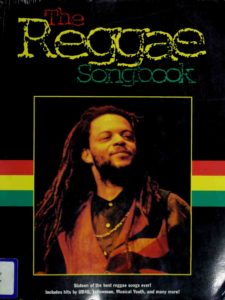 |
The Reggae Songbook – Music Sales Corporation |
| The Ring – End Credits Hans Zimmer |
 |
|
| The Rock Story Edited By Theo Cateforis (Book) |
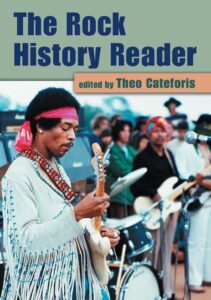 |
|
| The Rocky Horror Picture Show Science Fiction Double | The Rocky Horror Picture Show – Science Fiction Double | |
| The Rolling Stones Let It Bleed Authentic Guitar TABs |
 |
The Rolling Stones Let It Bleed Authentic Guitar TABs |
| The Rolling Stones – Best Of (Guitar Bass Drums Songbook) |
 |
The Rolling Stones – Best Of (Guitar Bass Drums Songbook) |
| The Rolling Stones – Get Off Of My Cloud | ||
| The Rolling Stones Classics – Volume One – Off The Record (Guitar Bass Drum Songbook) |
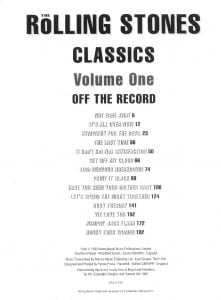 |
The Rolling Stones Classics – Volume One- Off The Record (Guitar Bass Drum Songbook) |
| The Rolling Stones Guitar Play-Along Volume 66 – with audio MP3 embedded with TAB |
 |
The Rolling Stones Guitar Play |
| The Rolling Stones Rock Score |
 |
|
| The Rolling Stones Songbook (Sheet Music Guitar Tab) |
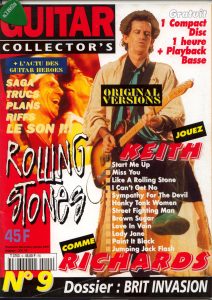 |
|
| The Russian School of Piano playing 1 |
 |
|
| The Russian School Of Piano Playing 2 |
 |
|
| The Sapin (Musescore File).mscz | ||
| The School Of Velocity Op 299 No. 1 (Musescore File).mscz | ||
| The Scientist – Coldplay Piano Arrangement(1) (Musescore File).mscz | ||
| The Secret History of Rock. The Most Influential Bands You’ve Never Heard |
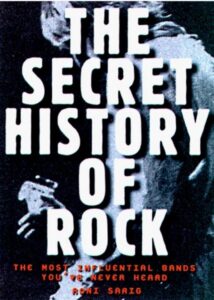 |
|
| The secret Life of Glenn Gould, A Genius in Love, by Michael Clarkson (2010) Biography |
 |
|
| The Shadow Of Your Smile (Musescore File).mscz | ||
| The Shadow of your Smile Johnny Mandel Francis Webster Jazz Standard arr. Carsten Gerlitz |
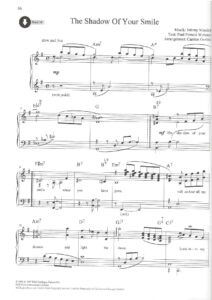 |
|
| The Shadow of your Smile(lead sheet) Mandel & Webster |
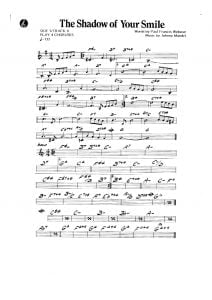 |
|
| The Shadows – 20 Big Hits – Songbook |
 |
The Shadows songbook |
| The Shadows Easy Guitar Hits |
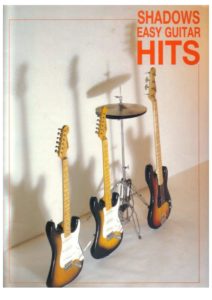 |
The Shadows Easy Guitar Hits |
| The Shape of Water (Alexandre Desplat) | ||
| The Shawshank Redemption – Stoic Theme – Thomas Newman | ||
| The Simpson’s Theme (Piano) Sheet Music |
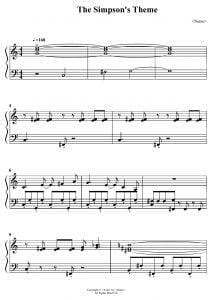 |
|
| The Simpsons – Main Title | ||
| The Simpsons Baby On Board | The-Simpsons-Baby-On-Board | |
| The Simpsons Minimum Wage Nanny | The Simpsons Minimum Wage Nanny | |
| The Simpsons Songbook – Danny Elfman |
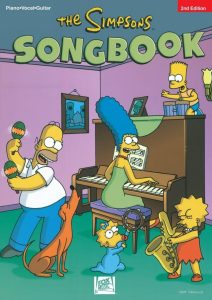 |
The Simpsons songbook |
| The Simpsons Theme (Musescore File).mscz | ||
| The Simpsons Theme by Danny Elfman |
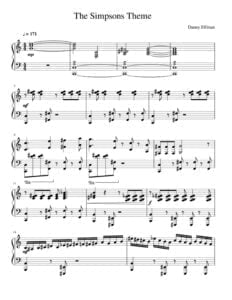 |
|
| The Sims Build Theme No. 1 |
 |
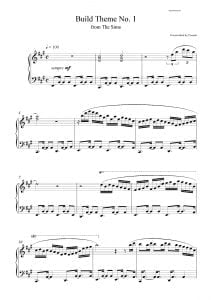 |
| The Slick Book |
 |
|
| The Smiths – Anthology |
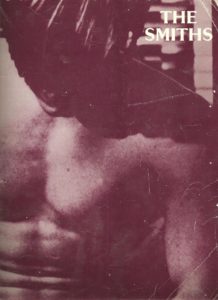 |
The Smiths – Anthology |
| The Smiths Best Of |
 |
The Smiths Best Of |
| The Song Is You – Jazz Standard | The Song Is You – Jazz Standard | |
| The Song Of Purple Summer (Musescore File).mscz | ||
| The Song Of Purple Summer Dunkan Sheik And Steven Sater (Musicals) |
 |
|
| The Song Writing Genius Within You by Geoffrey Williams (Book)2008 |
 |
|
| The Sound Of Music – Climb Every Mountain – Julie Andrews | ||
| The Sound Of Music – Rodgers & Hammerstein (Sheet Music Book) Vocal selections |
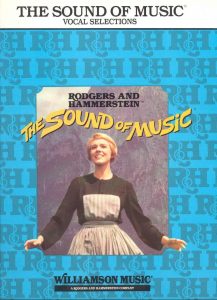 |
The Sound of Music |
| The Sound Of Silence – Simon & Garfunkel (Musescore File).mscz | ||
| The Spirit Of God Like a Fire is Burning Mixed Chrus and Organ or Pino by Mark Wilberg Ssaattbb |
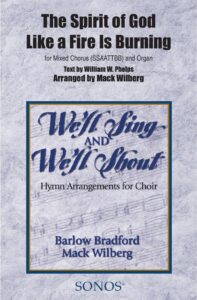 |
|
| The Story Of Music From Babylon To The Beatles How Music Has Shaped Civilization (Book) |
 |
|
| The Streets Of Laredo – American Cowboy Song Johnny Cash (Musescore File).mscz | ||
| The Strokes – Is This It (guitar with TABs) |
 |
The Strokes |
| The Third Man Theme By Anton Karas Guitar TABs |
 |
|
| The Three Tenors Songbook (for high voice and piano) |
 |
The Three Tenors Songbook |
| The Time Machine – The Eloi – Klaus Badelt | The Time Machine The Eloi Klaus Badelt 1st page | |
| The Tokens – The Lion Sleeps Tonight (Piano Solo arr. sheet music, Noten, partitura, partition) |
 |
|
| The Tokens – The_Lion_Sleeps_Tonight Piano Solo arr.mscz |
Creation and development

Final Fantasy VII was scored by the series’ main composer Nobuo Uematsu
Nobuo Uematsu composed the music of Final Fantasy VII in less than one year, matching the game’s development time, although he had taken two years to create the soundtrack for the previous title, Final Fantasy VI. Final Fantasy VII was the first game in the series to be developed for the PlayStation, and while the media capabilities of the console allowed for pre-recorded Linear PCM (often as Red Book audio tracks on the CD), it was decided to generate the music in real time on the console instead, using samples and note data. This decision has been credited as giving the soundtrack “a very distinctive mood and feel”, forming a strong association for listeners between the game and its soundtrack.
Uematsu had initially planned to use vocal performances for the game to take advantage of the console’s capabilities, but found that the advanced audio quality required in turn made the game have much longer loading times in each area. Uematsu decided that the quality was not worth the effects on gameplay, though after the release and seeing Suikoden II (1998, PlayStation), which had used higher-quality music instead, he reversed his stance for Final Fantasy VIII. There was a plan to use a “famous vocalist” for the ending theme to the game as a “theme song” for the game, but time constraints and thematic concerns, caused the idea to be dropped. Uematsu has stated, however, that the move into the “PlayStation era”, which allowed video game composers to use sounds recorded in the studio rather than from synthesizers, had “definitely been the biggest change” to video game music.
Uematsu’s approach to composing the game’s music was to treat it like a film soundtrack and compose songs that reflected the mood of the scenes rather than trying to make strong melodies to “define the game”, as he felt that approach would come across too strong when placed alongside the game’s new 3D visuals. As an example, he composed the track intended for the scene in the game where Aerith Gainsborough is killed to be “sad but beautiful”, rather than more overtly emotional, creating what he feels is a more understated feeling. Uematsu has additionally said that the soundtrack has a feel of “realism”, which also prevented him from using “exorbitant, crazy music”.
The first piece that Uematsu composed for the game was the opening theme; game director Yoshinori Kitase showed him the opening cinematic to the game and asked him to begin the project there. The track was well received in the company, which gave Uematsu “a sense that it was going to be a really good project”. He later stated in the liner notes for the soundtrack album that the music for Final Fantasy VII was his “greatest harvest” to date.
Final Fantasy VII was the first game in the series to include a track with digitized vocals, “One-Winged Angel”. The track has been called Uematsu’s “most recognizable contribution” to the music of the Final Fantasy series, though the composer did not expect it to gain such popularity. The piece, described as “a fanfare to impending doom”, is said to not “follow any normal genre rules” and has been termed “possibly the most innovative idea in the series’ musical history”.
Uematsu approached the piece, which accompanies the final battle of the game, in a different manner than previous “boss tracks”: as he felt that using his normal approach would cause unfavorable comparisons to his well-received Final Fantasy VI boss tracks, he instead tried to take a different approach. Inspired by The Rite of Spring by Igor Stravinsky to make a more “classical” track, and by rock and roll music from the late 1960s and early 1970s to make an orchestral track with a “destructive impact”, he spent two weeks composing short unconnected musical phrases, and then arranged them together into a song, an approach he has never used before or since.
The lyrics of “One-Winged Angel”, a Latin choral track that plays at the climax of the game, were taken from the medieval poetry that forms the basis of Carl Orff‘s Carmina Burana, specifically “Estuans Interius”, “O Fortuna“, “Veni, Veni, Venias” and “Ave Formosissima”. Uematsu has stated that the intro of “One-Winged Angel” is based on Jimi Hendrix‘s “Purple Haze“, that the piece revolves around the image of Sephiroth, and that despite the chorus and orchestra, he still thinks of it as a “rock piece”. He said in a 2005 interview that “One-Winged Angel” is his favorite tune from the soundtrack, and in 2004 that it was his favorite battle theme from any Final Fantasy game.
Final Fantasy VII Albums
Original Soundtrack
Final Fantasy VII Original Soundtrack is a soundtrack album containing musical tracks from the game, composed by Nobuo Uematsu and produced by Uematsu and Minoru Akao. It was originally released on February 10, 1997 through DigiCube and later reissued directly by Square Enix on May 10, 2004. The soundtrack spans 85 tracks over four discs and has a combined duration of 4:39:53. A limited edition was produced along with the original album, containing illustrated liner notes with several pictures of Uematsu’s workspace and personal effects, various cutscenes and in-game screenshots from the game, and a discography.
The soundtrack covers a wide variety of musical genres, including rock, techno, orchestral, and choral, although the soundtrack as a whole is primarily orchestral. While many of the tracks were intended as background music, reviewers noted the emotional intensity of several tracks, especially “Aerith’s Theme”, which plays during a moment described as “the most shocking moment in video games,” and has been described as the most memorable track from the album. The theme has become popular among fans, and has inspired various arrangements. Other notable tracks include “Main Theme of Final Fantasy VII”. Themes from this track play during several other tunes from the soundtrack, such as “Words Drowned by Fireworks”, to tie the soundtrack together.
The regular edition of the album reached No. 3 on the Japan Oricon charts, while the limited edition reached No. 19. Overall, the album sold 148,000 copies as of January 2010, with the limited edition selling a further 21,000. The album was well received by critics. Allmusic awarded Uematsu’s original soundtrack a five-star rating.
Ben Schweitzer of RPGFan claimed that “for the most part, it’s a diamond”, with his primary complaint being the quality of the MIDI sound. He found the tracks to be “beautiful” and said that “One-Winged Angel” was “possibly the most innovative idea in the series’ musical history”.
Patrick Gann of RPGFan concurred and found all of the soundtrack’s tunes to be “memorable” and the Original Soundtrack to be “very worth the purchase”. Philip of Square Enix Music Online, however, disliked the sound quality of the soundtrack and saw several tracks as “trivial”, though he did note that Uematsu “has a flair for strong, memorable” pieces. In 2006, IGN ranked the album as the best Final Fantasy soundtrack to date and cited the “gripping” character themes and “One-Winged Angel” in particular as contributing factors. They also named “One-Winged Angel” as the best piece of music from the entire Final Fantasy series.
The original CDs for both releases were only published in Japan and include only Japanese track names. The official English track names were later added to digital releases of the soundtrack.
